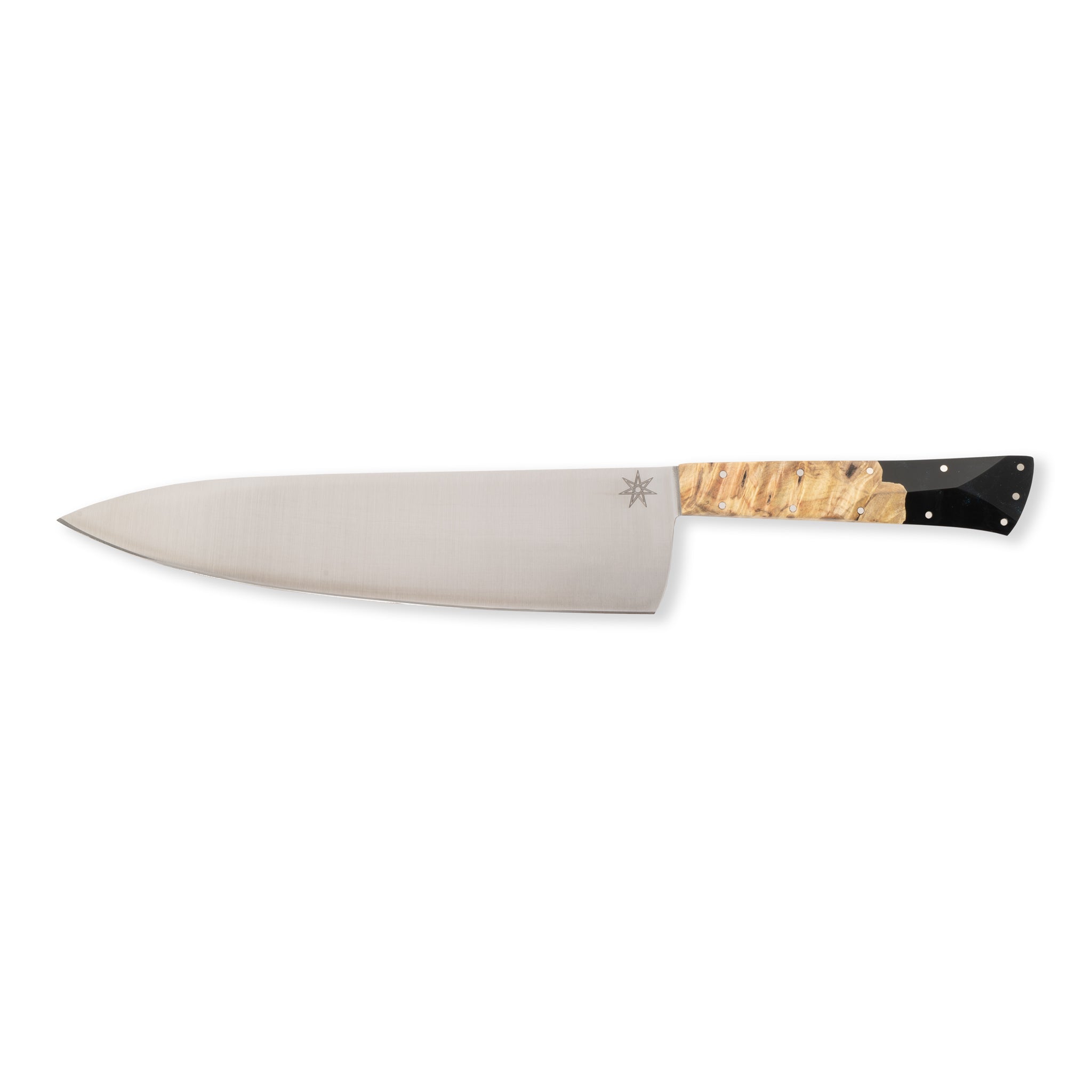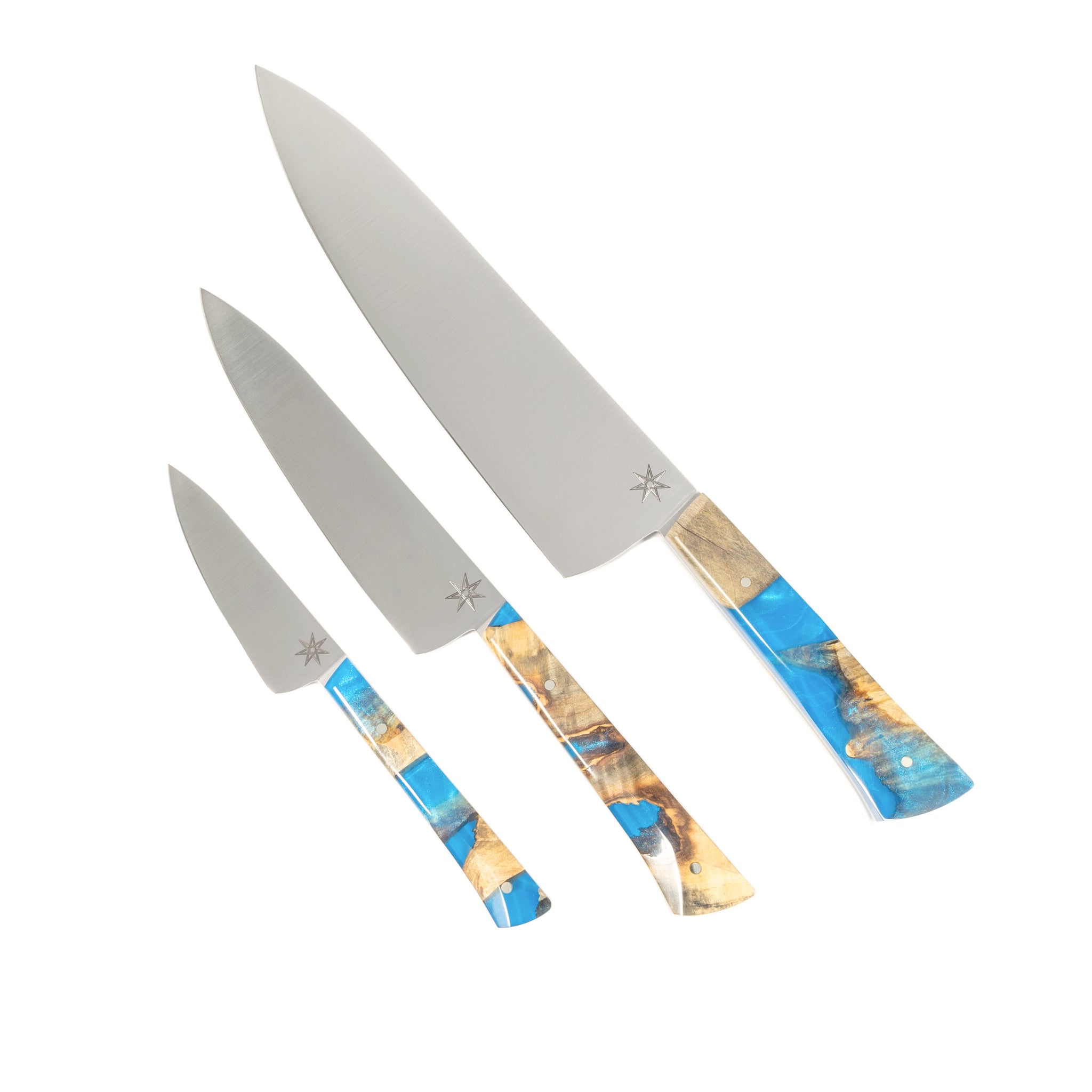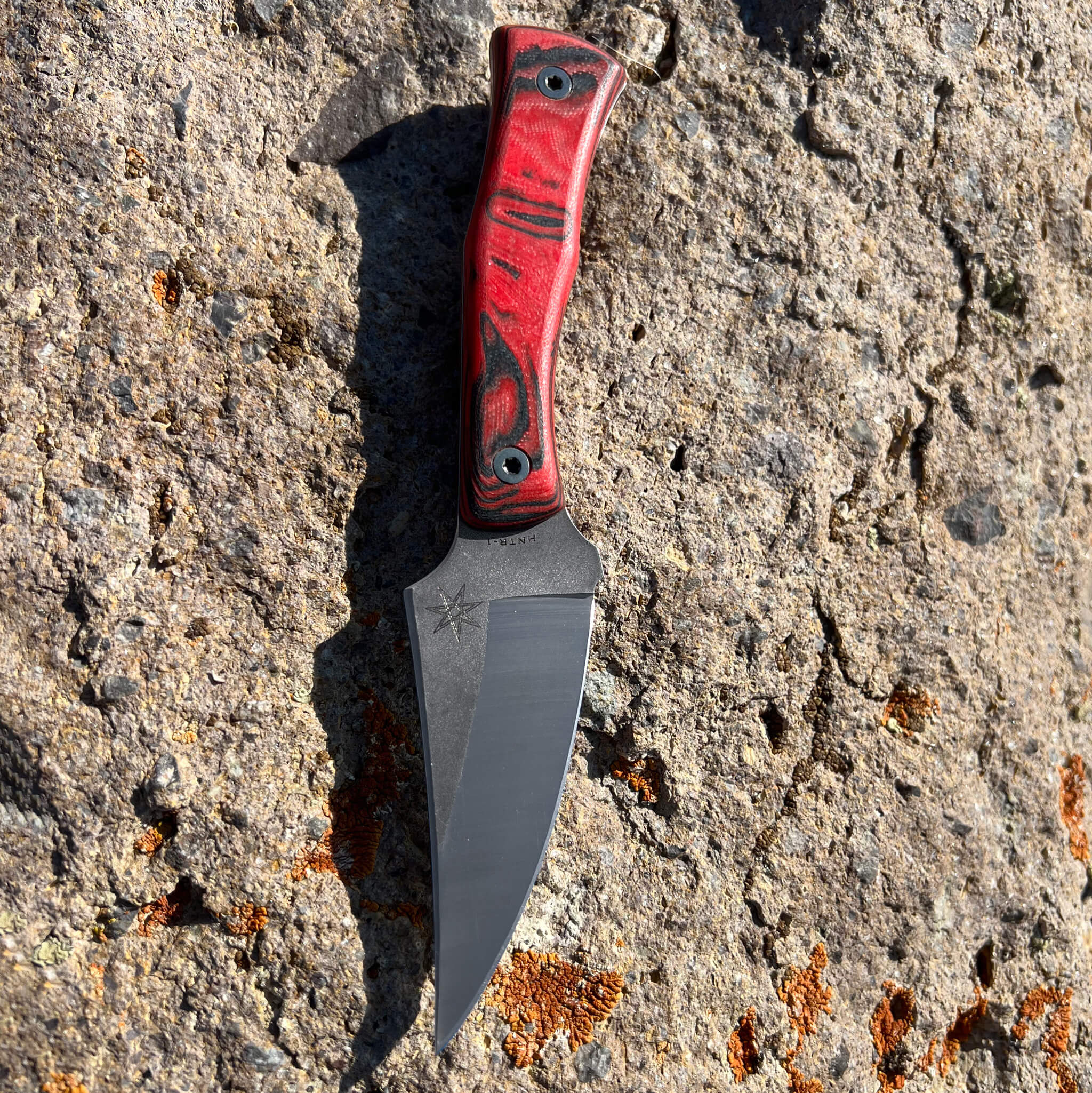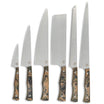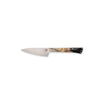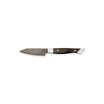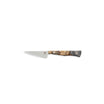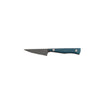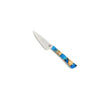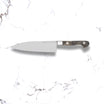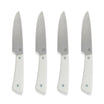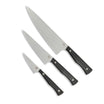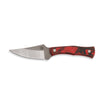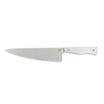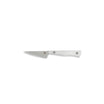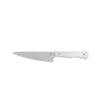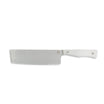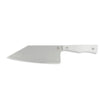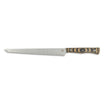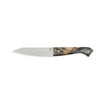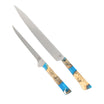Knife Care and Maintenance
PROPER CARE AND MAINTENANCE WILL HELP PROLONG THE LIFE OF YOUR KNIFE AND ENSURE EXCELLENT PERFORMANCE.
CARE
Always keep your knife dry and clean!
Hand wash with warm soapy water. No abrasive sponges.
Never put your knife in the dishwasher or leave it soaking in water.
Dry your knife completely using an absorbent towel. We find paper towels work the best.
All stainless steel contains some level of carbon, which is important for sharpness and performance. Because of this, light hueing can develop on stainless steel if not cleaned and dried properly.
We recommend storing your knives on a magnetic wooden strip, keeping it protected in a saya, or storing them in your knife roll or wrap.
SPECIAL CARE FOR CARBON STEEL KNIVES
Carbon steel knives require a few extra steps to maintain your blade.
Carbon steel is particularly reactive to high acid products. Therefore, it is imperative that you rinse your blade and wipe it dry after cutting anything acidic, such as citrus, tomatoes, and onions. If not rinsed, the acid will begin to corrode the steel and damage your blade.
After washing and drying your knife, we recommend oiling it with a food safe knife was or neutral oil, such as camellia oil, to protect your blade and encourage a slow and even patina. The oil will act as a barrier to help protect against future exposure to moisture and acids. We like camellia oil because it is food safe, has no flavor, no smell, and will not dry out or build up on steel as easily.
Apply a pea-sized amount of oil to the blade and evenly distribute in a thin layer from spine to edge. Oiling the edge of the knife can help keep your knife sharper longer, however, DO NOT DIRECTLY TOUCH THE EDGE OF YOUR KNIFE WITH YOUR FINGERS. To oil the edge of your knife, apply a small amount of oil to a thick towel and gently run the oiled towel over the edge. Wipe off any excess oil and store.
MAINTENANCE
We recommend a professional tune-up at least once a year, even if you are sharpening at home. If you do not sharpen your own knives, we recommend you have them sharpened when they start to feel dull. A sharp knife is always safer than a dull knife.
In between sharpening, a leather strop and honing rod can be used to help maintain a sharp and even edge. Honing rods do not sharpen the knife, but remove microscopic bits of steel helping to true the edge of the blade.
We never recommend machine sharpening, as these techniques are often too abrasive, are not able to achieve as fine of an edge, remove too much steel, and can heat up the blade, potentially damaging the structure of the steel.

